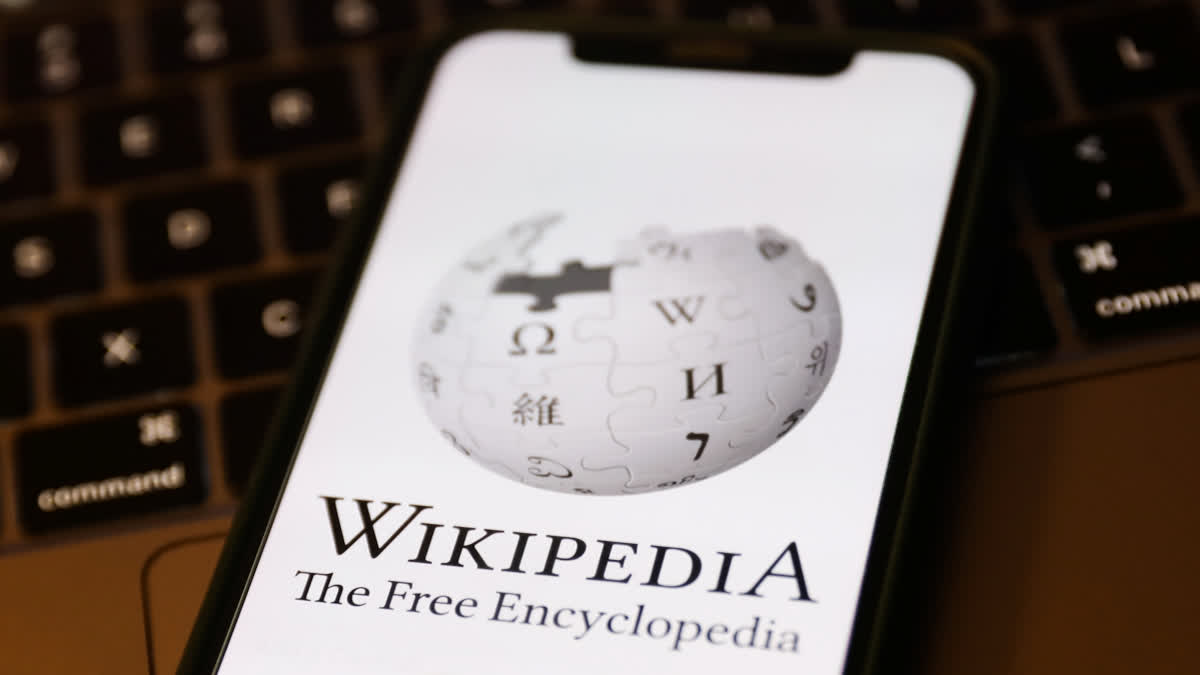San Francisco[US]: The Wikimedia Foundation, the non-profit that operates Wikipedia, on this International Women's Day, has announced the launch of its "Wikipedia Needs More Women" campaign to celebrate efforts around the world, including in India, to improve gender equity on Wikimedia projects.
On International Women's Day, the Wikimedia Foundation is celebrating efforts in India to improve gender equity on Wikipedia
This month, the Wikimedia Foundation's new "Wikipedia Needs More Women" campaign is celebrating ongoing efforts to close gender knowledge gaps and the volunteers doing this work, while also calling for a collaborative effort from everyone to increase gender diversity on Wikimedia projects.
The campaign invited everyone to improve gender equity on Wikipedia and beyond. "Indians are helping to improve gender equity and close knowledge gaps on Wikipedia," according to a statement released by the Wikimedia Foundation.
The gender gap is an all-pervasive issue across the internet and we need individuals and organizations across the information landscape to help #ChangeTheStats, the statement read.
Moreover, the campaign celebrates efforts around the world, including in India, to improve gender equity on Wikimedia projects and invites others to get involved. Wikipedia, being one of the world's largest knowledge resources, with 62 million articles in over 300 languages and 15 billion views per month, plays a crucial role in shaping our understanding of the world.
According to the statement, India has the fourth highest number of views of Wikipedia in the world, with 1.3 billion page views per month. In terms of content contributions, India has the third-largest number of contributors to English Wikipedia after the US and the UK; and it leads in content creation within the South Asia region, representing over 70 per cent of the region's information on Wikimedia projects.
Moreover, for many years, the Wikimedia Foundation, along with Wikimedia volunteer communities in India have been making efforts to address knowledge gaps and increase equitable engagement and representation of all people and subjects on Wikipedia and beyond.
Notably, out of more than 300 languages on Wikipedia, 20 languages, called Indic languages, are rooted in India, which is the largest number of languages represented from one country.
The WikiWomen Camp 2023 held in Delhi-NCR, hosted around 100 volunteers from 30 countries to discuss the strategic approach of the Wikimedia movement to bring gender equity on Wikimedia projects.
As a result, the group announced a comprehensive declaration for promoting diversity and inclusion in Wikimedia projects and shared key recommendations and next steps with the wider Wikimedia movement for consultation.
There has been a tremendous effort from Wikimedia contributors in India to help bridge the gender gap on Wikimedia projects over the past years. From hosting the global WikiWomen Camp 2023 to running women-centric edit-a-thons for different languages to collaborations focussing on bringing women-related content on Wikimedia projects to having women leaders passionately improving content on topics such as women's health, women in science, etc., and beyond.
Since 2021, India has seen a steady growth rate of 13 per cent in content related to women on Wikimedia projects because of the efforts of individual contributors as well as collective initiatives.
Masana Mulaudzi, Senior Manager of Campaign Organizing at the Wikimedia Foundation, said, "It is inspiring to see the progress made in India to improve gender equity on Wikipedia and beyond. As one of the world's top resources for information, it's critical for Wikipedia to represent the full, rich diversity of all humanity. When more people from India contribute to Wikipedia, we move closer to achieving this vision."
"On International Women's Day, the 'Wikipedia Needs More Women' campaign is a call to action for everyone to help close these knowledge gaps on Wikipedia. There are a number of ways that people can get involved to change the stats and make a difference, from editing a Wikipedia page to attending an online event," said Anusha Alikhan, the Wikimedia Foundation's Chief Communications Officer.
"We're also calling on everyone -- journalists, academics, thought leaders, and individuals and organisations across the information landscape -- to increase their coverage of women. This will help build out the ecosystem of secondary literature that Wikipedia volunteers rely on to create and improve content about women," she said.
Everyone can join the campaign #ChangeTheStats, and make a difference. To participate, join an event for Women's History Month and celebrate women. Every year in March, hundreds of Wikimedia volunteers around the globe get together in person and virtually to edit women's content onto Wikimedia projects.
Moreover, 'Celebrate Women' is a volunteer-led campaign that is open to all beginner and experienced editors. The participants can improve a Wikipedia article by adding a citation or expanding an article about a notable woman.
They can also join their local community of Wikipedia volunteers, or share how they are helping to #ChangeTheStats on social media. Notably, content on Wikipedia is written on notable subjects by over 265,000 volunteer contributors from around the world.
These volunteers adhere to Wikipedia's editorial standards, ensuring all information is backed by reliable sources and presented from a neutral point of view, read the statement from Wikimedia Foundation.
Wikipedia depends on the availability of existing published sources to verify the facts in its articles.
However, in many places around the world, women have been left out of historical narratives and traditional sources of knowledge, making the gender gap an all-pervasive issue across the internet, which signifies that many of these knowledge gaps are also reflected on Wikipedia, and women remain significantly underrepresented, the statement added.
Read More



